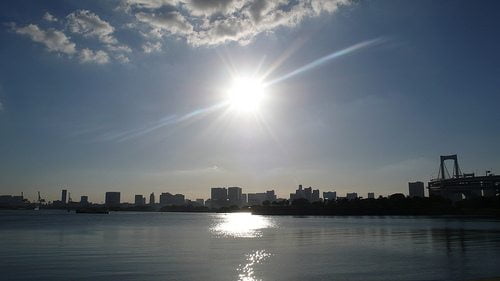

News
Solar activity could affect UK winters but not enough to offset global warming
Solar activity could mean the UK, and other parts of Europe and Northern America, have cooler winters at levels not seen since ‘frost fairs’ took place on the River Thames, according to research from the Met Office. However, researchers added that the sun would not “save us from global warming”.
The study, which has been published in Nature Communications, looks out the sun’s output increases and decreases. It is thought by some solar physicists that there’s an increased risk that we’re heading towards the lower end of this cycle.
The ‘grand solar minimum’ was last seen during the so-called ‘Maunder Minimum’ that ended 300 years ago. The period coincided with colder winters in the UK and Europe, with ‘frost fairs’ held numerous times on a frozen River Thames. Climate scientists have been assessing how such as event could impact global temperatures.
The new study found that the global impact from reduced solar output was relatively small and would not be enough to offset global warming, with a cooling effect of around 0.1C. On a regional level the effect will be more noticeable with northern Europe, including the US and some eastern parts of North America experiencing cooling in the range of 0.4C to 0.8C.
It is also noted that any difference the grand solar minimum would make to global temperatures would only be temporary.
Sarah Ineson, a Met Office scientist and lead author of the research, explains, “This research shows that the regional impacts of a grand solar minimum are likely to be larger than the global effect, but it’s still nowhere near big enough to override the expected global warming trend due to man-made change.
“This means that even if we were to see a return to levels of solar activity not seen since the Maunder Minimum, our winters would likely still be getting milder overall.”
She continued that the “sun isn’t going to save us from global warming” but the regional impacts should be factored into decisions about adapting to climate change for the decades to come.
Photo: Nicolas via Flickr
Further reading:
Climate change records support predictions, say scientists
‘New era’ in Arctic Ocean due to climate change
Climate change among greatest threats to human civilisation
Queen’s Speech: ‘worrying omission’ of climate change action
New series demonstrates climate change impacts on businesses



















